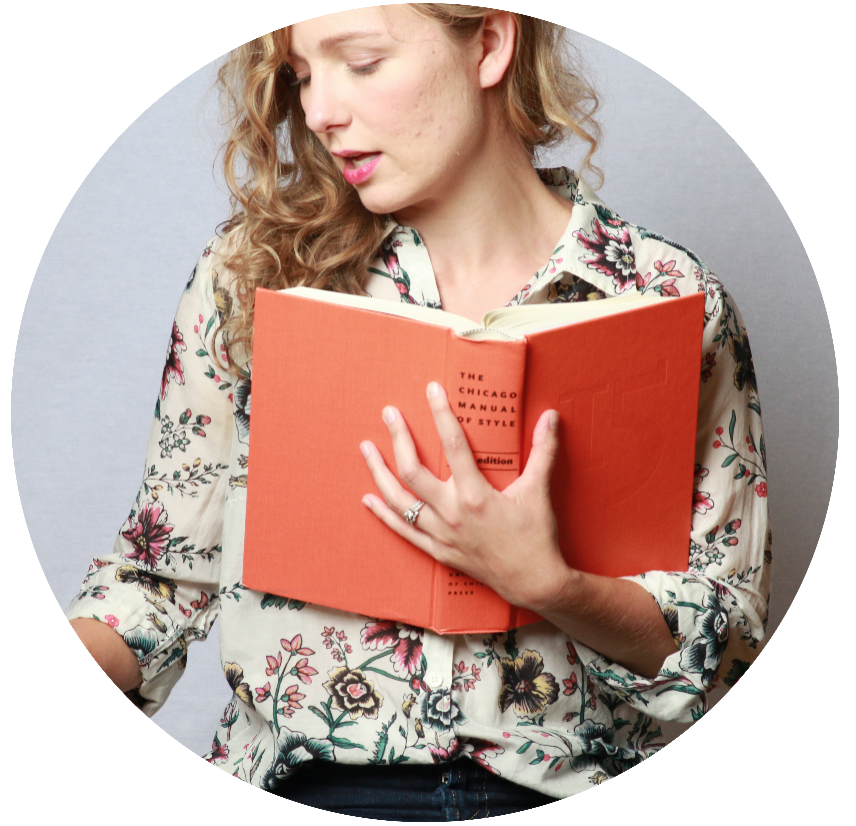Dear reader: Normally every wedding anniversary, I write a post on what I’ve learned in our last year of marriage. (You can read the old ones here, here, here, here, here, here, here, here, here.) But not our ninth year—because, you know, new babies and all.

But the fruit of the Spirit is love, joy, peace, patience, kindness, goodness, faithfulness, gentleness, self-control; against such things there is no law. —Galatians 5:22–23 (ESV)
Right now, as I sit down in my messy living room full of toddler toys to write this essay about being married for ten years, I’m having a recurring daydream fantasy about leaving—yes, that kind of leaving.
Not for any other reason other than the sheer and complete exhaustion that comes from the season of life we’re in—that oftentimes, it feels as if we’re speaking directly past one another, and that the asking and the not hearing and the hearing and not seeing can only go on for so long before someone loses their mind or is deeply hurt.
Temptation is present with this fool’s gold promise: Things would be easier separate than together.
But as Nick leaves the house to swing by the grocery store for the third time already this week to pick up a carton of milk for our son, I know that’s not true.
***
When I first met Nick almost twelve years ago, in the current personal season I was in, I didn’t want to get married to anyone.
But in the short time we dated, he redefined those things through soft correction and his innate gentleness. I decided that I still didn’t want to be married—but if I were to ever marry, it definitely would be him.
So on July 31, 2010, in a modest event that took place in a beautiful tiny church with a too hot fellowship hall, melting wedding cake, and the people we loved most, we pledged to hold one another close in sickness and health and do dishes together until one of us died.
Nick didn’t know it then, but he was committing to make breakfast over and over in perpetuity by himself for years. He would be the only one to make coffee, take out the trash, and clean that weird stuff out of the drain. And I had no idea on our wedding day, but I’d be the only one who was anxious enough to repair leaks in the basement before something really bad happened and apparently be in charge of child care and work as much as humanly possible around nap times, bedtimes, and sleepy mornings.
We also didn’t know it then: We’d be starting a garden that would require much from us.
***
Late night, exhausted quiet-fighting will wear marital affection thin. But this is where weeding the garden gets done—in the small master bedroom directly across from the one other small bedroom in our tiny townhome. Quietly arguing is part of our skillset, and works well for a yell-free family like ours. But whisper-fights still have the same cutting sting.
I don’t understand it, but it’s like you’re always seeking validation from everyone. And it wears people out, Nick said defensively as some sort of retort to my callout. It was the final punctuation to our argument before we fell asleep.
I had nothing to say as I drifted off—because he’s right.
It’s like I’m holding an old wrinkly parking ticket. And the right people—the people who were supposed to validate my parking ticket—never did. So I’m running around to everyone else asking them to validate it. And sometimes they politely do, but it’s still not quite right and doesn’t fit the bill. So here I am, desperately, hungrily asking for parking validation stamp after parking validation stamp in an attempt to love my soul and legitimize what my heart has been through.
But the truth is, no one can do this for me, and I don’t even have to do this. And honestly, the pattern of running around attempting to fill my needs expels more energy than sitting and breathing and learning to sit with the needs themselves—running seems more natural.
We both have our issues, our personality flaws, our Achilles’ heels. They are seen with sharp precision this far in. It hurts so badly, but love is in the callout. I think.
And so we pull weeds from the garden—together—late at night in a warm upstairs bedroom with quiet tears as we lay as far apart as we can on our queen-size bed.
***
I heard a saying once. Someone told me it was derived from something Wendell Berry wrote or said: There are explorers and there are farmers. There are those who have the need to travel and discover, sowing seeds where they go and not stopping to till or see their fruition—and then there are those who are homebodies, feeling better-suited and more inclined to stay deeply rooted where they’re at, tilling, and pruning, and sowing year after year. The world needs both.
Nick and I are definitely farmers. So it is well-suited that we like to stay put and tend and that I like to grow things.
But still, I’d like to high tail it out of here when things are hard.
When working on my current flowerbed where we now live, I’m pulling out almost 35 years’ worth of deeply-seated weed systems and lilly overgrowth. I’m slowly and methodically diversifying the beds with coneflower, sedum, buddleia, dahlias, and a variety of leafy mints—things that are durable and drought-resistant. Right now, I’m strategizing bulbs for spring and about to place my fall-planting order. The goal is longevity, color year round, and establishing beauties that we can enjoy the fruit of while we’re living in our small home.
For some reason, when it comes to growing a garden, the dirty work—mud under fingernails, encounters with spiders and grubs, scraped knees and aching joints—and all the frustration and waiting that’s involved seems to be worth the cost. Logically, there’s hope in the dirty work: the expectation that things will be beautiful eventually. Sometimes, it takes three years, three rotations of the same growing season, for a perennial to take on it’s full glory in bloom and health.
But scientific laws the Lord has set into motion have shown us faithfully again and again: Do this, plant this under these conditions, water, weed, mulch, and glorious things will show up in their own rightful time.
It is slightly more difficult to believe this same truth exists in human relationships, especially marriage, and especially if you’ve been an eyewitness to things unraveling and falling apart over and over.
And honestly, this horticultural formula and analogy doesn’t hold solid for all marriages. “Just wait it out, keep working, and see,” is not doable for some, especially those encountering a form of abuse or blatant unrepentance.
However, it does hold true for our marriage. Over the past ten years, I’ve seen this pattern, and I’ve seen the healing and the glory that comes from the tilling and the tending. We’ve endured so much and carried one another through so much and hurt one another so much and worked on so much and loved one another so much—and there’s a blossoming growth that’s faithful season after season. From asking trusted friends and therapists Is this normal? How do we heal it?—the fruit directly comes from the dirt under the nails and scraped knees.
One late night in June, we found ourselves weeping over the unexpected loss of a dear friend. You’re not supposed to lose someone so well loved, so joyful, and so young. You’re not supposed to lose someone before they meet your son. But Nick did.
And in the middle of the night, side by side in that same warm upstairs master bedroom with an entirely different set of tears, we tended the garden in the flooding rain.
***
A couple months into the 2020 start of the global pandemic, I looked over at Nick in our small kitchen—full exhaustion could easily be read across my face.
Do you think our marriage will survive this? I said.
What do you mean? He asked, while packing dishes and baby cups and bottles into the top dishwasher rack.
You know—a challenging, unexpected, acrobatic baby, a global pandemic, ministry life, a country falling apart, my own doubt, financial concerns, and my selfish desire to run away and leave both of you right now.
Sure, he said confident and unhurried, in that Nick kind of way.
Nick doesn’t always say the right things, or the right things in the right ways, but he’s one of those men that, when he says something—even if it’s just the word sure—it’s been carefully measured and said in earnest.
I’m sorry I hurt you. I know you don’t like me today, but you will like me again tomorrow.
Later, in the same vein, we sat together at our dining room table working from home while the baby was asleep upstairs. I looked him in the eyes, mine welling up, and I said it straight:
You know, even if we divorced—not that we’re planning to or even considering it—but even if for some reason we chose to, I would still want you in my life. You’re the kind of person I want to encounter each day.
Like, friends with benefits? Nick said, kind of with a chuckle.
No. I said with an obvious eye roll. Like real, true friends who love one another no matter what. I would still want you regularly in my life.
And that, dear readers is the entire point to this essay. (Sure, there’s an obvious gardening metaphor here carrying this essay along, too.)
This tenth year of marriage, I learned something deep and immovable: I love him anyway.
Yes, I love all the wonderful things about my husband—he is really an incredible man who really does strive to be like Jesus—but as the purifying, refining fire of a global pandemic lit up our home in a brand-new way, I realized that even if we never ironed out all of our issues, even if we endure the same communication struggles for the next 100 years, even if we hurt one another (which we will), I love him. Like, I love him without condition.
It took twelve years of knowing him and ten years of marital intimacy to realize that I really, really do love him—all the way. Even if he never shakes the things about himself that I find annoying or broken. Love is in the callout. Love is in repentance. Love is in the moving forward with deeper intimacy.
And this loving that happens—despite knowing the other person, their faults, their sins, their complicated issues—is teaching me to love my neighbor better. I’m starting to believe that the practice of committed Christian marital love is to strip us of selfishness and build us in empathy, so then we can use those muscles to spread the redeeming Gospel and truth of we are loved by our Creator anyway—without condition. Not to build our own little perfect dream homes. Not to well up in a cocoon of our own protected ideas, people who look/think like us, people who are easy for us to love.
In learning to love Nick all the way, I’m learning to love others all the way too.
***
But back to the garden.
The Holy Spirit has used marriage in my life to amend unhealthy soil. Where weeds of bitterness and anger were threatening to take over, we’ve worked together alongside the Spirit to pull them out at the root. And season after season, we have to get on our knees in the dirt and uproot them one by one. Years ago, Nick sowed seeds of sweet mint: gentleness, peace. We’re slowly letting it take over, and it’s slowly choking out the weeds. And Lord knows it takes dutiful diligent work, faithful hands, and time on my knees to eradicate pride and selfishness day after day. The tending and the pruning grow the practice of self-control.
Season after season, year after year, root systems deepen—and if you give the marital garden exactly what it needs, and if it gets exactly what it needs from the atmosphere, you will have the privilege of seeing things flourish.
As every good gardener knows, a beautiful garden takes weeding, mulching, tilling and tending, pruning and planting, seeding and sitting. It takes thunderstorms, dry and thirsty days, frosts and freezing, perfect weather and unexpected heat waves. Sometimes, it takes weeks and weeks of rain and clouds. And I feel like that’s where we are sitting right now.
But the important things last through the wind, weather, and work it takes to grow something beautiful—and if you take care of a garden, it’s something that generations can enjoy. The investment of time and elbow grease builds a place of respite.
In the film A Hidden Life, there’s this common visual thread: the film’s dark, moody tones and dimly lit scenes are punctuated by a bright white, clear and hopeful sacred space—the master bedroom. In this true story, the married couple in the film is undergoing severe outside trial, and the overall film is one of conviction and grief; the film’s visuals display that accurately.
But their bedroom—despite the couple’s rural poverty and wartime practicality—has painted walls (where the rest of the house is raw wood), handmade wood furniture, a simple cross on the wall, a small cradle near the foot of the bed, a cozy quilt, and happy windows, symbolizing the respite and sanctuary that is their simple, blissful, hardworking, fruit-laden and joy-filled marriage.
I picture this couple digging potatoes and baling hay all day, dirty and tired afterward. Washing up once the kids fall asleep, they enter their place of tranquility and hope to find safety in what they’ve built.
***
Almost exactly twenty-four hours after our terribly sad argument where Nick called out my incessant, unhealthy need for validation (and I called out his recurring prideful defensiveness in the marital relationship, but it’s neither here nor there), we were laying on a quilt spread out across the cool grass after the baby had fallen asleep upstairs.
We have a back deck with plenty of chairs, but all the flowers in the front flower bed are in bloom, so I like to be close to them.
Nick turned on the audiobook we’ve been listening to together, and we admired the sunset and clouds from the blanket’s vantage point. He turned to me and traced my face with his finger. I tried not to cry.
The mosquitoes eventually came out in full force, which put an early end to our pandemic date. We settled for folding more laundry by the light of the TV instead of enduring the itchy pin-pricks of nature. Next, we had to put the clean sheets on the bed after a day of washing—which is always an ordeal. One of us likes really straight lines and tightly tucked-in fabrics, one of us doesn’t care because beds get unmade anyway. I’ll let you guess who is who.
We were putting pillowcases on to pillows that need to be completely replaced, and we started giggling about how it’s so easy to just go buy new pillows and we never do. Which led to hearty, wholehearted laughing about how, for the past five years, Nick has been talking about a pillow he saw on a late-night infomercial he’s wanted to try, so he should just buy one already. Literally for half our marriage he’s been talking about trying this pillow.
Just buy the dang pillow, Nick.
As we discussed this, our bedtime laughter climbed up the walls of the cathedral-style ceilings in our small master bedroom; we joked about starting a GoFundMe for a new mattress and how Nick’s dad swears up and down that Sleep Number beds leak air. I fell back on the freshly made bed while belly-laughing too loudly—Nick was snickering while grabbing his pajamas and heading to the shower. The baby somehow stayed asleep in the next room.
And there, in the middle of the night while putting on pillowcases—and although we are completely worn thin from this season of life, as evident by the lines on our face and circles under our eyes and our gently expanding waistlines, while still holding on to one another as much as we can carry—we sowed seeds in the garden through inside jokes and silly smiles.
And I know we will see the fruit and the glory from the dirt under our fingernails and the aching in our joints. I know we will one day reap the stretching benefit of the dry spells, months of storms, and stifling heat waves.
Ten years of marriage has surely taught us that.

If you liked this post, you might also like:

Such beautiful, honest words. True water for this gardener’s garden. Always appreciate your honestly and unapologetic way of writing. Thank you for sharing with us, once again.
aww, thank you for reading!